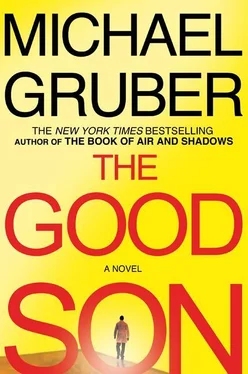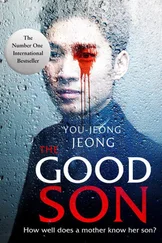With that, he took his Webley out of the sidecar and handed it to me. I looked into the face of Salim Malik. It seemed to me that the resignation of death was already on it, but at the time I was not the expert I later became. I thought about what my grandfather and my sisters had looked like as they burned in the car, and what they looked like afterward, and what the smell was like. So it was not hard to cock the big pistol, set myself carefully so I wouldn’t get hit in the face by the recoil, and shoot Salim Malik in the head like a good Pashtun.

Gloria gave a small shriek. “You shot him? Oh, my God, how old were you?”
“Around nine. It was no big deal at the time. It was just like playing guns and Hindus with Wazir, which I guess is why those African militias recruit kids as soldiers. We numb up real fast and kill without thought. You want to hear the rest of this?”
She did, and I went on.

An hour later I was stuffed uncomfortably into the sidecar of the motorcycle, along with a twenty-five-kilo bag of rice, plastic sacks of dal, oil and spices and salt, the Enfield with its ammo; a jerrican of water was lashed onto the hull forward of the little windscreen: the commissary and armory of our tiny army. Wazir was on the pillion, leaning back against our luggage. He looked at me with a wild delight. We were going to war, to jihad against the Russians. Gul Muhammed had been brief in his explanation: the infidels had invaded Afghanistan three months ago and all Pashtuns were obliged to heed the call of religion and tribe. Also, it was no longer safe for any of us in Lahore. I recall asking about my mother and how she would find me in Afghanistan, and he’d said war was not the business of women, which seemed a reasonable answer at the time.
So we sped through the night city to the Grand Trunk Road, north out of Lahore toward Peshawar and the border. I was exhausted, and after a while I arranged the dal sacks like beanbag pillows, and fell asleep on them. I recall I awoke once; it must have been near dawn. We had stopped for some reason, and I looked up and into the face of a boy about my own age in a white shalwar kameez. He was attending an allnight roadside tea stall. He smiled and waved and I returned the salute. I thought he envied me my adventure.
We got to Peshawar on the third day after two hundred and fifty miles of hard pounding, half choked by dust and fumes. The city was already full of Afghan refugees from the communist takeover and the brief civil war that followed, but not as crammed as it would be in future, when the war really bit in. Gul Muhammed had an address of a cousin, Bacha Khan, who offered us the customary hospitality. He was a fat man with a long beard, the first fat Pashtun I had ever seen. At the time, as I gathered from the conversations of the men, the resistance was fragmented into half a dozen squabbling parties, each with their own armed force and ideas about the future of the country, but which were temporarily united as the Islamic Unity of Afghan Mujahideen. I obviously didn’t get the religious and political difference between the seven main mujahideen groups, but in the end it didn’t matter much. The clan elders of the Barakzai were going with the National Islamic Front of Afghanistan, so that’s where we went too.
The NIFA had a training camp outside of Peshawar in a village called Ali Shawr, so one day we packed up our stuff and went there. The original village had exploded into a vast improvised encampment on flat squishy land on either side of a trickling stream, thousands of people living a pickup kind of life in tents or shelters made of plastic tarpaulins, scrap wood, cardboard, and corrugated tin. Gul Muhammed found a shanty for us in the area occupied by members of his clan, and we slipped into the seething mass like a drop fallen into the sea. They say children are adaptable, and that was how it was for me. After a week or so, my life in the Laghari mansion was like a half-recalled dream; it was as if I had always lived here in the cold and the mud, with a dozen families, our neighbors, living out their lives in our laps, at full volume and odor.
A few days after we arrived, Gul Muhammed made his contacts with the NIFA command and went off to train as a guerrilla. We two boys, to our immense disappointment, discovered that we were to be sent to school at the village madrasa. I went along willingly enough, because they fed you a meal at the school, but Wazir rebelled, the first time I ever saw him defy his father, and he was savagely beaten for it, with an actual camel whip. Wazir was dying to go and kill Russians for God, although he had never seemed to be particularly religious up until then.
Before he left, though, Gul Muhammed formally adopted me into his clan and tribe, so I would have protection and be a real person. It was Wazir who convinced him to do it, a big deal among Pashtuns, so now I had two fathers and a brother.
Then he was gone and Wazir and I went to the school and were more or less looked after by the clan. The teacher was a half-deaf old man named Bazgar, and our education consisted entirely of memorizing the Qur’an, in classical Arabic, which none of us understood. I once asked Teacher Bazgar what it meant and he said, “It’s the word of God, that should be enough for you,” and swatted me for insolence.
Then came the endless winter-we huddled around the fires while old men told us stories of former wars and revenges-and after that the spring, wildflowers lighting up the slopes around the camp with color. When the passes and trails were clear of snow, an air of heightened feeling ran through the camp, for now convoys and caravans could be organized, to move supplies and reinforcements north to battle. Gul Muhammed came to see us one night to say farewell. He was armed, dressed for the mountains in boots, a quilted jacket, and a felt Pashtun cap, and carried an immense backpack.
“Why can’t I go with you?” Wazir complained.
“Because I say not,” his father replied. “Stay here and grow strong. This war will last a long time.” Then he gave instructions about what to do if he should be killed, threading through his vast cousinage in succession, with contingencies: if such a one should die, go to that one, if he should die, then the next. With that, he gave us each a rough embrace and was gone into the night.
There were hundreds of similarly deserted children in that camp, yet we were all cared for in the manner of the Pashtuns. Our clan took care of us, and the clans of the others did the same. We formed wild bands, fighting battles in the rocky hills around the camp, practicing ambush, assault, escape. We hung around the mujahideen training grounds, yearning; we hitched rides into Peshawar and strolled the arms bazaars, ogling the wares like boys my own age in the States did in back rooms of magazine stands; pistols were our Penthouse, rifles our Hustler, weapons of all the world’s armies over nearly a century: Mausers, Garands, Tokarevs, Enfields, Nagants, and, prized above all, the Kalashnikov AK-47, drool-making object! The bazaaris complained that prices were plunging disastrously, weapons were flooding in from all over the world; the Saudis were shipping, the Americans, the Pakistanis most of all. But the prices were still too high for boys with no money at all.
Summer, and the camp was a stove, it became unbearable to sit in a hot courtyard and chant suras, so we ditched school entirely. Refugees from the war continued to pour into the camp, and the crowding became insane, all the better accommodations taken by families with young children. We slept under a sheet of plastic propped up by sticks. In July the monsoon rains came, and the whole camp became a steaming mire. We found work building duckboards for a local guy and did that for a couple of months. We were restless and bored, and one day Wazir came to me saying, “I am tired of this life. We are not of the menial tribes, you and I, and this work disgraces us. But listen: there is a convoy leaving tonight. We can sneak onto one of the trucks and by the time they find us it will be too late. We will be in the jihad.”
Читать дальше














